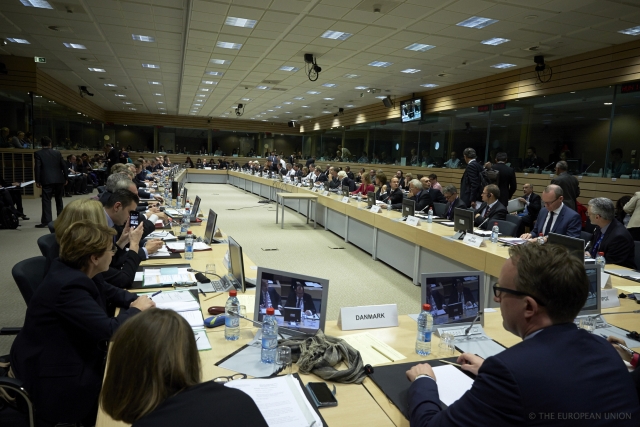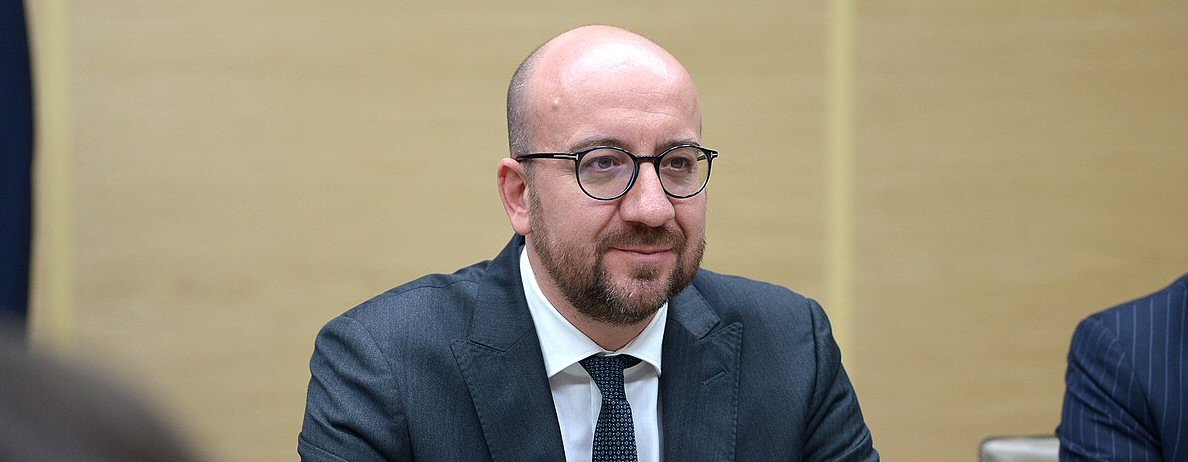The answer to this question is of course that we cannot know for certain at this stage. Under the Commission proposal the CAP will be merged into the proposed National and Regional Partnership Fund (NRPF) along with all other shared management funds where currently Member States receive pre-allocated amounts. Under the new arrangement, there would be only one pre-allocated envelope for Member States. There is a minimum ring-fenced amount for what is now referred to as CAP income support interventions (plus some fisheries support) of €295.7 billion. But the final amount allocated to CAP interventions will depend on how Member States allocate their NRPF resources in their NRP Plans.… Read the rest
What impact will degressivity and capping have?
In my previous post, I calculated the size of the amounts that could be allocated to the degressive area-based income support payment using the minimum and maximum amounts of aid per hectare proposed in the NRPF Regulation of 130 EUR and 240 EUR, respectively. This payment is intended to provide area-based income support for eligible hectares to farmers to address income needs. The purpose of the exercise was to examine the potential allocations to other CAP instruments, for example, agri-environment-climate actions, depending on how much Member States allocated to the degressive area-based payment.
The limitation of that calculation is that it assumed that all hectares would receive these amounts, and thus it took no account of the potential impact of degressivity and capping.… Read the rest
Commission proposal could allow significant increase in CAP basic payments in many countries
Initial reactions to the publication of the Commission’s proposals for the next CAP and their budgetary implications focused on the overall reduction in the CAP budget for income support (the minimum €296 billion ring-fenced within the National and Regional Partnership Fund). In a previous post, I calculated this reduction to be 15% on a like-for-like basis compared to the current income support under the CAP in current prices. Making a comparison with the current total CAP budget will depend, in addition, on how much Member States will allocate to the non-income support elements of the CAP (including, for example, Co-operation projects (LEADER, EIPs) as well as Knowledge Exchange (AKIS)), which cannot be known at this stage.… Read the rest
The Commission’s CAP budget proposal in the next MFF
Please note that I have updated and revised some of the commentary in this post in a later one here. This later post gives a a more optimistic view of the likely size of the CAP budget though still with caveats. I would urge readers to also read this later post in conjunction with this one. I have left this post online for the record.
The publication of the Commission’s MFF proposals and related legislative proposals on Wednesday 16 July was chaotic, in part it seems because negotiations within the Commission went down to the wire right up to the afternoon of the day of publication.… Read the rest
Fitting the CAP into the next MFF long-term budget
The Commission Communication on The road to the next multiannual financial framework published in February 2025 put forward several proposals for the reform of the MFF structure prior to the formal legislative proposal now pencilled in for July 2025. For the Commission, the key priority is the scale of the budget and the means to finance what it sees as inevitably greater expenditure in the coming programming period. It notes in bold print on page one of the Communication that Europe needs to square the circle: “there cannot be an EU budget fit for our ambitions and notably ensuring the reimbursement of NextGenerationEU, and, at the same time, stable national financial contributions without introducing new own resources”.… Read the rest
When the CAP budget pendulum finally stopped swinging
In the early hours of Tuesday 21 July 2020, around 5.30 am, after four days and nights of negotiations, European Council leaders reached agreement on both the Next Generation EU recovery instrument and the Multi-annual Financial Framework (MFF) for the period 2021-2027. Reaching unanimous agreement among 27 leaders who entered the negotiations with widely different positions was an astounding political achievement. And although the inevitable compromises were accompanied by expressions of regret, it is extraordinary that every leader has expressed satisfaction with the final outcome.
There are many aspects of the European Council conclusions that warrant analysis: the agreement that the EU for the first time can issue debt to fund a stimulus package to address the catastrophic economic fall-out from the coronavirus pandemic; the future links between EU financial transfers to countries and the rule of law; the framework set out for additional own resources in the coming years; the continued relevance of budget rebates: and the extent to which the final outcome succeeded in ‘modernising’ the budget to reflect the EU’s new priorities.… Read the rest
Coronavirus uncertainty as CAP decisions are postponed
There is increasing focus on how the coronavirus pandemic is likely to affect agricultural markets, food supply chains and farm incomes (for example, the series of IFPRI Resources and Analyses on COVID-19). Panic buying of long-life staples – as well as toilet roll, of course – led to temporary shortages on supermarket shelves but supplies were very quickly replenished.
In the medium-term, there are concerns that labour shortages, logistical difficulties in transporting goods across borders and falling export demand have the potential to cause disruption. The various actors in the European food chain issued a statement on 19 March calling attention to likely operational difficulties and asking the Commission to ensure that free movement of goods within the single market can continue, including through managing ‘green lanes’ at borders, to allow the food chain to function effectively.… Read the rest
President Michel’s solution to the MFF conundrum
In my previous post I discussed the challenges facing European Council President Charles Michel as he took over responsibility from the Finnish Presidency to prepare the draft conclusions on the Multi-annual Financial Framework for the coming meeting of the European Council on 20 February next.
The Finnish Presidency proposal had been attacked on all sides as unsatisfactory. Yet, in that previous post, I speculated that Mr Michel was unlikely to hear anything very different to what the Finnish Presidency had heard when charged with forwarding the ‘negotiating box with figures’ to the December 2019 meeting of the European Council.… Read the rest
Climate mainstreaming the CAP in the EU budget: fact or fiction
Climate mainstreaming of the EU budget was introduced in the Commission’s Multiannual Financial Framework (MFF) proposal for the period 2014-2020 which first put forward the idea that “the optimal achievement of objectives in some policy areas – including climate action, environment, consumer policy, health and fundamental rights – depends on the mainstreaming of priorities into a range of instruments in other policy areas” (COM(2011)500). The Commission advocated in particular that the EU budget could play an important role in catalysing the specific investments needed to meet the EU’s climate targets and to ensure climate resilience.
The policy fiche on climate action in the Annex to the 2011 MFF proposal included the idea that the proportion of EU budget spending contributing to the EU’s transition to a low carbon and climate resilient society should be increased to at least 20%, subject to impact assessment evidence.… Read the rest
What explains the differential cuts in CAP P1 and P2 spending in the Commission’s MFF proposal?
As I discussed in this post, the Finnish Presidency has been tasked with presenting a first draft of the MFF ‘negotiating box’ with numbers prior to the next European Council meeting 12-13 December 2019. This will be no mean feat given the wide differences of opinion between the ‘frugal five’ Member States – Austria, Denmark, Germany, the Netherlands and Sweden – that want overall a smaller budget than what the Commission has proposed, and other Member States that want to reverse some of the Commission’s cuts in cohesion and agricultural spending (Politico’s Lily Bayer goes through the different alliances in this article published today).… Read the rest










